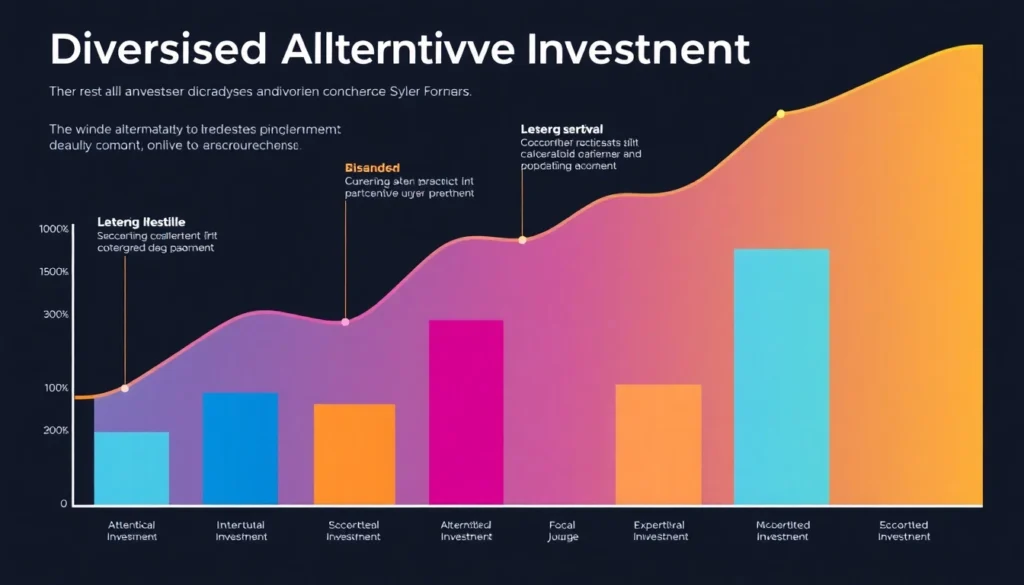Comprehensive Alternative Investment Guides UK: Strategies to Diversify and Grow Your Portfolio

Harnessing the Power of Alternative Investments: A Comprehensive Guide for UK Investors
In the rapidly evolving landscape of global finance, alternative investments have gained significant traction among UK investors seeking to diversify their portfolios and enhance returns. Unlike traditional assets such as stocks and bonds, alternative investments encompass a wide range of assets that often have low correlation with conventional markets, offering a valuable hedge during economic volatility. Whether it’s gold, real estate, private equity, or emerging sectors like legal cannabis and renewable energy, understanding the intricacies of these assets is essential for crafting a resilient investment strategy. To navigate this multifaceted environment effectively, investors should leverage trusted resources such as the Alternative Investment Guides UK, which provide expert insights, detailed analyses, and actionable advice tailored to the UK market context.
Understanding Alternative Investments and Their Role in UK Portfolios
What Are Alternative Investments and Why They Matter
Alternative investments refer to assets outside the realm of traditional equities and fixed-income securities. These assets include commodities like gold, real estate, hedge funds, private equity, commodities, and innovative sectors such as legal cannabis and renewable energy projects. Their significance lies in their ability to diversify risk, reduce portfolio volatility, and potentially deliver higher yields, particularly in periods when traditional markets underperform. Given the current global economic uncertainties—ranging from geopolitical tensions to inflation concerns—alternative assets can serve as a stabilizing force, protecting investor capital and enhancing overall portfolio resilience.
Types of Alternative Assets Popular in the UK Market
Within the UK, several alternative assets have gained prominence among both retail and institutional investors. These include:
- Precious Metals: Gold, silver, and platinum have long been considered safe havens, especially during times of economic distress or when US rate-cut bets drive demand.
- Real Estate: Commercial and residential properties, including REITs (Real Estate Investment Trusts), offer income and capital appreciation.
- Private Equity and Venture Capital: Investing in private companies or startups can yield high returns but often requires substantial capital and risk tolerance.
- Commodities: Oil, natural gas, and agricultural products provide diversification and exposure to global supply-demand dynamics.
- Emerging Sectors: The legal cannabis market and renewable energy projects are burgeoning sectors driven by changing legislation and environmental policies, presenting new growth opportunities.
Benefits and Risks of Including Alternatives in Your Investment Strategy
The integration of alternative assets offers several advantages:
- Diversification: Reduces reliance on traditional markets, enhancing resilience against downturns.
- Potential for Higher Returns: Especially in niche markets or underexplored sectors with growth prospects.
- Hedge Against Inflation: Assets like gold and commodities tend to appreciate during inflationary periods.
However, risks are inherent and include liquidity constraints, higher volatility, less regulatory oversight, and market complexity. For example, investing in private equity or venture capital can tie up funds for years, while emerging sectors like legal cannabis might face regulatory changes that impact valuations. Therefore, robust due diligence and aligning investments with risk appetite are critical.
Selecting the Best Alternative Investment Guides UK for Your Needs
Key Features to Look for in Investment Guides
When choosing an investment guide, especially for complex sectors like alternatives, look for sources that offer:
- Up-to-date market analysis and forecasts
- Expert insights tailored to the UK regulatory and economic environment
- Case studies illustrating successful strategies and cautionary tales
- Step-by-step guidance on due diligence, asset selection, and risk management
- Transparency regarding sources and methodologies
Evaluating Credibility and Expert Advice in Guides
Credibility hinges on the qualifications of authors, the transparency of data sources, and the track record of previous recommendations. Reputable guides are often authored or reviewed by industry professionals, regulated financial advisors, or academic experts. Cross-referencing multiple sources and checking for peer reviews can increase confidence in the material.
How to Use Guides to Inform Your Investment Decisions
Effective utilization involves aligning guide insights with your personal financial goals, risk tolerance, and time horizon. Use guides to identify emerging sectors, assess risk-reward profiles, and develop actionable plans. Remember, no single guide replaces personalized advice from licensed financial advisors, but comprehensive resources can substantially enhance your understanding and strategic planning.
Implementing Alternative Investment Strategies Effectively
Building a Diversified Portfolio with Alternatives
A well-structured portfolio integrates various asset classes, balancing risk and return. For example, combining gold and commodities for inflation hedging, real estate for income, and emerging assets like legal cannabis for growth creates a resilient mix. Regular rebalancing ensures alignment with evolving market conditions and personal circumstances.
Case Studies of Successful UK Alternative Investments
Consider the case of a UK pension fund that diversified into renewable energy projects, achieving a 7% annual return while contributing to sustainability goals. Similarly, high-net-worth individuals investing in UK-based luxury real estate or rare metals have seen substantial capital appreciation, especially during economic downturns, highlighting the importance of strategic sector selection.
Monitoring and Adjusting Your Investment Approach Over Time
Continuous review is vital. Stay informed through reputable sources and market updates. Adjust allocations based on changes in market dynamics, personal financial situations, or regulatory environments. Automated tools and professional advisors can assist in maintaining optimal portfolio performance over time.
Legal, Tax, and Regulatory Considerations in UK Alternatives
Understanding UK Tax Implications of Alternative Investments
Investors must understand tax treatments to optimize returns. For instance, gains from gold bullion are subject to specific VAT and capital gains tax rules, while real estate investments may involve Stamp Duty Land Tax (SDLT). Vehicles like ISAs and SIPPs offer tax advantages, but each has restrictions and qualifying criteria.
Regulatory Environment and Investor Protections
The UK regulates alternative investments through agencies like the FCA, ensuring transparency and protecting investors from fraud. However, sectors like cannabis are still emerging, presenting unique regulatory challenges. Staying updated on legal changes and ensuring investments comply with current laws prevent potential pitfalls.
Common Pitfalls and How to Avoid Them
Common issues include overconcentration in niche sectors, falling prey to scams, or neglecting due diligence. Diversification, working with reputable brokers, and consulting licensed financial advisors mitigate these risks.
Future Trends in UK Alternative Investments and Guides
Emerging Asset Classes and Opportunities
The next frontier includes digital assets, inverse ETFs (like Hong Kong’s upcoming inverse bitcoin ETF), and green bonds linked to sustainable projects. The legal cannabis market remains promising, with increased legislative support opening avenues for growth.
The Impact of Economic and Political Changes on Alternatives
Geopolitical developments, Brexit negotiations, and climate policies influence asset valuations and regulatory frameworks. Staying informed through updated guides enables investors to pivot strategies proactively.
Utilizing Updated Guides to Stay Ahead in the Market
Regularly consult industry reports, expert analyses, and government publications. Updated guides reflect latest trends, legal amendments, and market analyses, equipping investors with current intelligence for sound decision-making.







